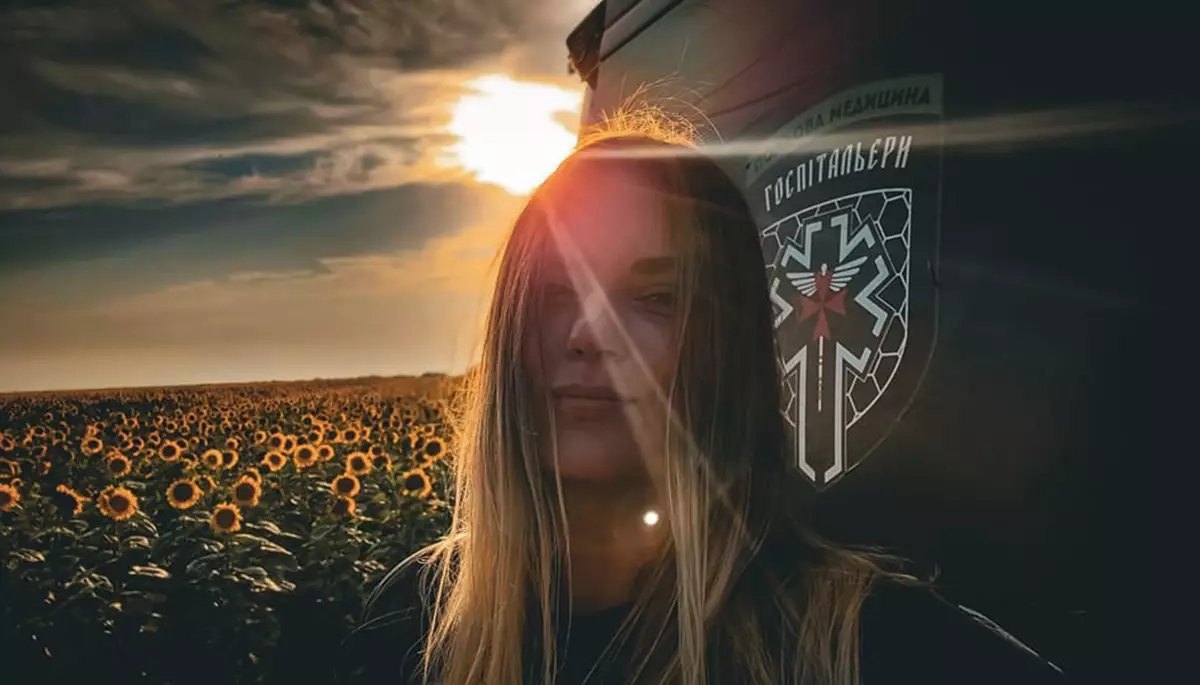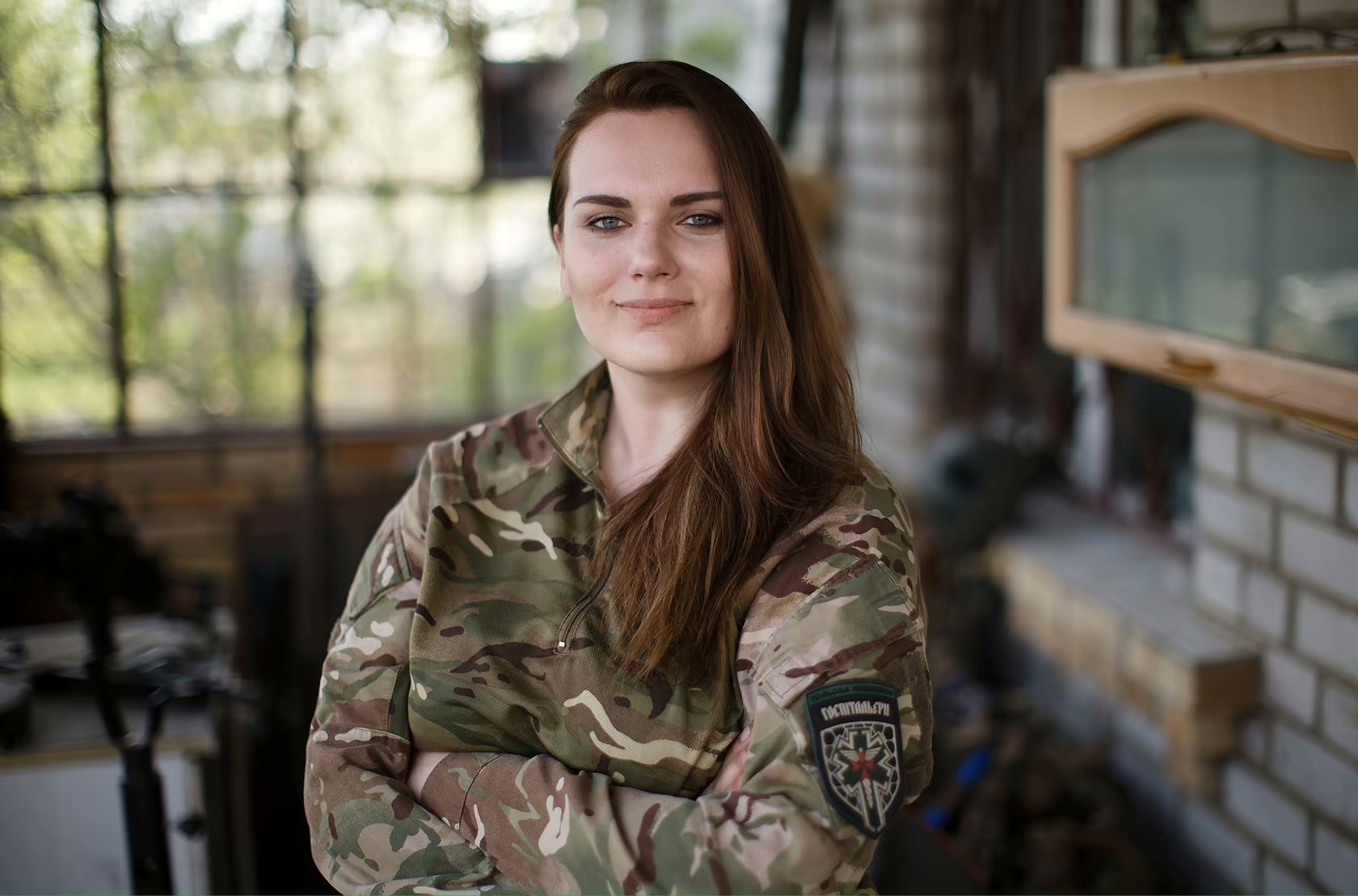
Formation
Ira was intelligent, incredibly charismatic, creative and beautiful. She was also brave and outspoken. Cheka wrote and spoke frankly on topics that many considered sensitive. As a result, she was frequently subjected to criticism and considerable online hostility.
Now, following her death, many people openly admit that Ira’s words, ideas, views and values – which she defended with remarkable conviction – changed their lives. She inspired them to join the Defence Forces, to study the history of their homeland and that of Ukraine as a whole. She helped many understand the importance of memory, which indeed shapes society, as Ira insisted.
But first, the core principles of national memory and a national policy of honouring the fallen must be shaped by people. Ira believed that this should be undertaken by those we consider the national elite – historians and scholars – as well as the finest daughters and sons of this country, who risk their lives daily on the battlefield and give up the most precious things in the fight for freedom. After all, according to Iryna, this is what true life is about – a life rooted in essential virtues: making the right choice, self-sacrifice and the responsibility of a mature and conscious individual.
“Our values have ceased to be merely symbolic or rhetorical. When we clean the car of the wounded’s blood, I feel as though I can hold freedom in my hands. Our independence is not without cost, and everyone who defends our country understands its value. The most important changes will come after the victory – only then will we know whether such life-affirming transformations truly reach everyone or just those who took part in these events,” said Iryna Tsybukh in an interview.
Her extraordinary charisma continues to influence people – even after her death.
People leave letters of gratitude at Iryna’s grave at the Lychakiv Cemetery of Heroes in Lviv, along with various symbolic items – tourniquets, postcards, drawings, sweets, and chevrons. Someone even placed a flowerpot of tomatoes beside the grave. Iryna’s mother laminates some of the letters and drawings in an effort to preserve them.
“She inspired people, continues to inspire them, and will likely go on inspiring them in the future. They write to her about this in their letters. They thank her, tell her about the strength she gives them, about the motivation she provides across various aspects of life,” says Iryna’s younger brother, Yuriy (Yurko) Tsybukh.
He recalls how his sister would often spontaneously gift him books – and how she always chose the perfect ones. She knew him so well. Yurko admits that these books changed the course of his life. Following Iryna’s death, he began organising and leading memorial tours of places connected to her. During these tours, he speaks about his sister, her life, and the values she held dear.
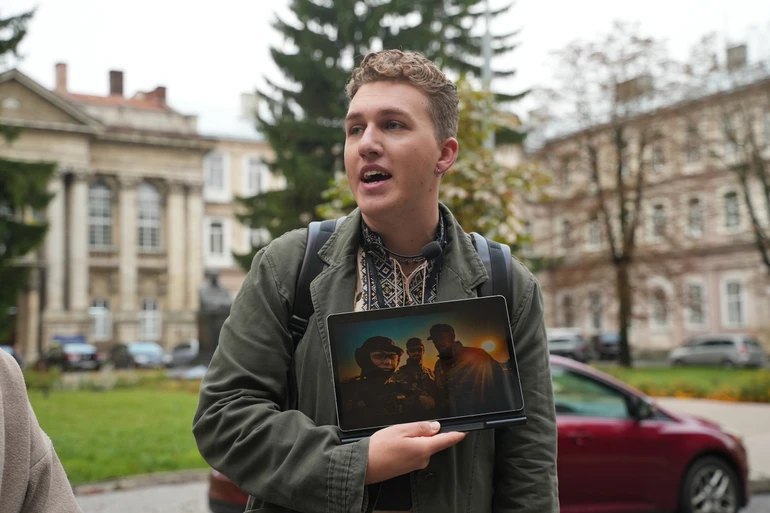
“Ira was a fully formed personality – very strong. Of course, she listened to our opinions and advice, but she always made her own decisions and would simply inform us of them,” says her mother, Oksana Tsybukh. “That love was present in everything. And her love for Ukraine – no matter how clichéd it may sound. But in Iryna’s case, it is not a cliché, because she gave her life – and that is the highest form of love.”
After Ira’s death, her parents initially blamed themselves for not having saved their daughter. In time, however, they came to realise that this reaction diminished the meaning of her choice – for Iryna, dignity and the pursuit of freedom were paramount.
“Iryna always told us she was fine, but I would learn just how hard her days and nights had been only later, when I read about how many lives she had saved, how many wounded she had evacuated. The greatest happiness I felt was in her words – in the emotions she shared after such rescues,” says Oksana Tsybukh.
Family, traditions, stories and upbringing held a central place in Iryna’s life. She tried to come home whenever possible, and always sought to be with her family for holidays – although she admitted that the best Easter and Christmas celebrations she had experienced were during her rotations in Donbas.
Instead of long messages, Iryna’s family would wait for her to write something brief and reassuring in their family chat: “I’m fine”, “I love you”, “I’m alive”, “kiss you”. That was Iryna’s trademark – instead of a simple “plus-plus” in messengers, she always wrote “kiss-kiss”.
Iryna Tsybukh realised at an early age that she could not tolerate injustice in her country. Her upbringing played a crucial role in this: she was raised in a patriotic and socially conscious family, where stories of those who had fought for Ukraine’s freedom were shared from her earliest years. Her uncle, Mykhaylo, had fought on the Maydan, volunteered to serve in eastern Ukraine during the Anti-Terrorist Operation, and returned to the front after the start of the full-scale war. On her father’s side, Ira’s great-grandmother Lina was imprisoned in the infamous Lontskoho Street prison in Lviv.
From childhood, Ira read extensively and placed great value on education – a commitment that continued throughout her life.
At the age of just 14, she and like-minded friends took part in their first protest, opposing the Kivalov–Kolesnichenko law, which restricted the rights of the Ukrainian language. It marked the beginning of her civic activism. As Cheka would later write, it was the moment she realised how deeply such issues affected her.
During the Revolution of Dignity, Ira – then still a secondary school pupil – joined her friends in central Lviv to support the Euromaydan movement.
It was also the first time she did not sleep at home – instead, she spent the night at the Shevchenko monument, where the city’s Maydan was centred. She wanted to travel to Kyiv, but her parents would not allow it.
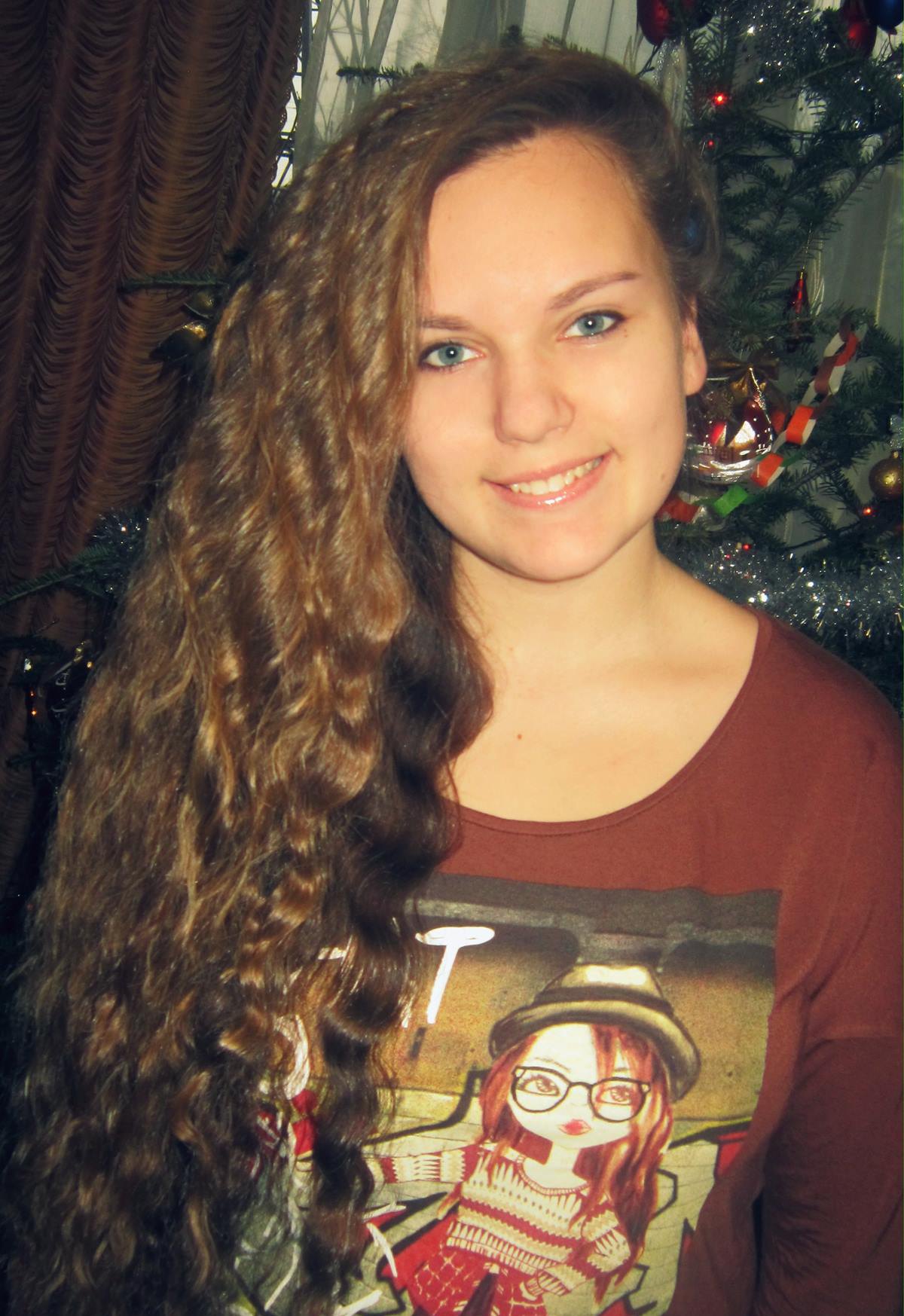
After the shootings on Instytutska Street in Kyiv, Ira went there with her uncle Mykhaylo – her mother’s brother – who had been directly involved in the Revolution. The Maydan was still standing, with barricades in place and people still present. Her uncle showed her the exact locations of key events, where he and his comrades had hidden behind shields during the gunfire. What Iryna saw and experienced on that day left an irreversible mark on her, as she often said in later years.
“I went to Maydan with my uncle after the shootings, and I saw him crying. It was deeply painful for me. It was a time of great sacrifice. We didn’t yet realise how many more lives would be lost – or that we would grow used to it. The war had already started, and I wanted to defend my people, to wake them up and tell them: we are the same – let’s fight together against Russia,” Cheka later said in an interview.
Later, together with her friends and her then-boyfriend Bizon, Ira began travelling to Donbas on educational missions to schools, where they spoke to students about the Revolution of Dignity.
Recalling these trips, Ira noted with sorrow that the most negative reactions came not from students, but from adults – particularly teachers.
“I was 17 years old when I first went to Donetsk Region. It was the brightest and most naïve age, when I believed that my friends and I could visit schools in Donetsk and Luhansk and show that America hadn’t drugged us, that no one paid us to be on the Maydan. I thought we would be loved, that we would find common ground, and so on. But it turned out to be impossible to talk to the adults – Russian propaganda had worked pre-emptively. It was impossible to reason with them, because what they were saying had no logic. But we found an audience – teenagers and schoolchildren – with whom we spoke a great deal about the Revolution of Dignity.
It was deeply painful for me to hear a Ukrainian language teacher, standing in a classroom decorated with embroidered towels, tell her students: ‘Maydan is a pimple on your arse! The war is because of the Maydan.’ I later had to work through this experience with a therapist. But at the same time, it strengthened my belief that I was on the right side.”
Ira called her work “sowing doubt”. As a representative of a conscious civil society, she took on a role that should ideally have been carried out by the state – challenging stereotypes and debunking the disinformation absorbed by people surrounded by Russian propaganda. She was most effective when speaking to schoolchildren and teenagers. In some cases, she later kept in touch with them via social media. One girl from Kostyantynivka later said that Ira’s lecture had pulled her “out of the bottom”.
“It was a key task – to say: listen, maybe not everything is as your parents tell you at the kitchen table. Doubt it!” Cheka said.
Ira had profound respect for pro-Ukrainian individuals in Donbas, often noting that being a patriot in that region was much harder than in Lviv. Surrounded by pro-Russian narratives, one had to make a real effort to uncover the truth, rather than simply believe everything said on television.
This was one of her guiding principles – to study history deeply in order to feel the ground beneath one’s feet. Ira valued education and intelligence immensely, believing them to be the key to everything. She encouraged everyone to read, to study, and to think critically.
It was in 2015 that Iryna first travelled to Pisky, where she supported the Ukrainian Armed Forces and Right Sector volunteers as a volunteer. In the years that followed, she returned to Donbas many times. She raised funds, purchased essential equipment and supplies, and personally delivered them to the front line.
She did all of this without informing her parents – sparing them the anxiety and herself the burden of their concern.
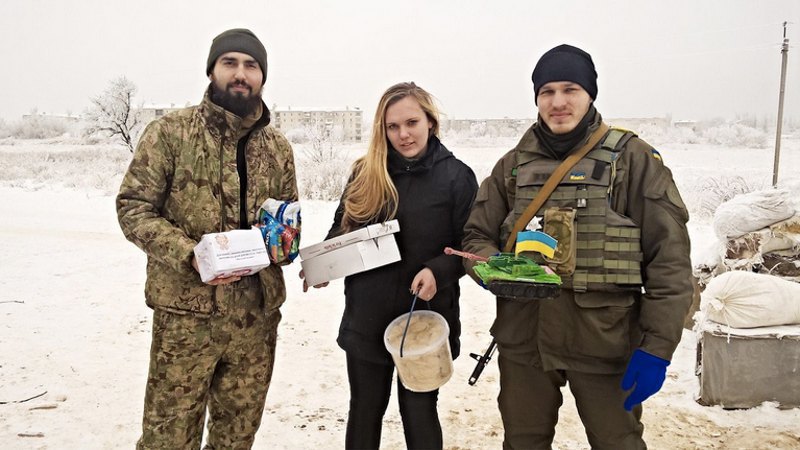
“My daughter would come back from these trips very uplifted. We may have tried to convince her not to go, but she wouldn’t listen. She said: ‘Dad, believe me, there are many people there who can be convinced – and they’ll then do what I tell them. And they’ll convince their friends and acquaintances. They need to be told the truth about Ukraine,’” recalls her father, Volodymyr Tsybukh.
Ira was very fond of Donetsk Region, calling it a true Cossack land. She greatly admired the artist Alla Horska, who was born there, often citing her as an example of a conscious return to Ukrainian roots and identity. As Ira used to say, Donbas was the first place where her own identity began to take root.
She often joked that when meeting new people, she sometimes introduced herself not as being from Lviv, but from Makiyivka.
It was during these early trips to Donbas that she received her call sign. Around her neck, she wore a cheque-patterned grenade ring – a gift from a soldier she was passionately in love with. Her comrades began to affectionately call her “Cheka”.
At the age of 18, while in her second year at the Department of Journalism and Mass Communication at Lviv Polytechnic National University, Ira transferred to a part-time programme and moved to Kyiv. While still a student, in 2017, she joined the Suspilne team that was reforming the national broadcaster. She worked as a lecturer in news broadcasting and media literacy at the Social Academy, collaborated with regional branches, implemented grant-funded projects, made documentaries, and served as a media trainer.
Outside of work, she remained deeply involved in education-focused initiatives aimed at developing critical thinking and media literacy in schools.
At the same time, Ira continued travelling to the front as a volunteer medic – balancing life at war with her civilian career.
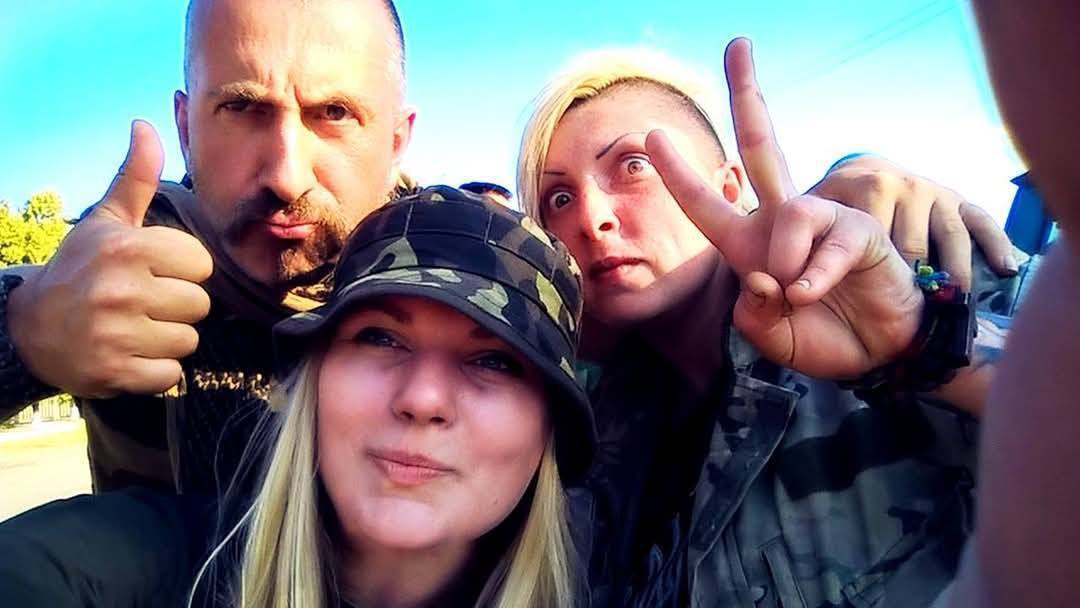
In 2020, she joined the Hospitallers and underwent full training as a combat medic in the battalion.
That same year, she enrolled in the Public Policy programme at the Kyiv School of Economics, where she planned to write her master’s thesis on memory and memorialisation. Ira was a highly organised person – full of plans and ideas. But the full-scale invasion prevented her from bringing many of them to life.
The Great War
The Russian invasion found Iryna Tsybukh in eastern Ukraine. On 22 and 23 February 2022, she was presenting her documentary Distance in Pokrovsk and Kramatorsk. The film focused on the lives and needs of teenagers in remote villages across Donetsk and Luhansk Regions – young people who lacked access to basic opportunities: decent transport links to district centres, youth clubs, swimming pools, cinemas or shopping centres.
On 24 February, she was due to present the film in Syevyerodonetsk, and the following day in Kyiv. Ira would later say that this was meant to be one of the most important events of her life. She had planned to wear a beautiful dress and heels. The premiere was expected to draw key decision-makers – people responsible for designing inclusive spaces for rural teenagers.
“This presentation was supposed to be the peak of my career. But it didn’t happen…” she later wrote.
The towns and villages where the film’s characters lived were soon occupied by Russian forces. Cheka evacuated Kramatorsk aboard a train filled with children from boarding schools – and shortly after, she returned to the ranks of the Hospitallers volunteer medical battalion.
From the very first days of the full-scale war, Ira worked in the Kyiv Region. She helped evacuate children with their parents and people with limited mobility from Irpin and from the direction of Baryshivka. She later recalled sitting outside a hospital in Akademmistechko, having just brought in another evacuee, and feeling an overwhelming wave of despair. Russian troops were so close. It felt as though Kyiv was about to fall.
“The fighting after 24 February was unlike anything I had seen before,” she said. “It was such a dynamic, intense war that I slipped into apathy. There was a feeling of apocalypse – a sense that we were alone, that we wouldn’t win, that this enormous army would crush us. I thought I was about to die.”
But in the summer of 2022, the 5th crew was reassembled – named after the fifth ambulance to reach Kyiv. These comrades became her lifeline. “These people supported me, pulled me out of depression, made me believe that if we train, we will survive,” she said.
After that, Ira continued her work in Donetsk Region with the 503rd Marine Battalion, and later with paratroopers near Bakhmut. In total, Cheka completed 15 frontline rotations with the 5th crew – across Kyiv, Donetsk, Zaporizhzhya and Kharkiv Regions.
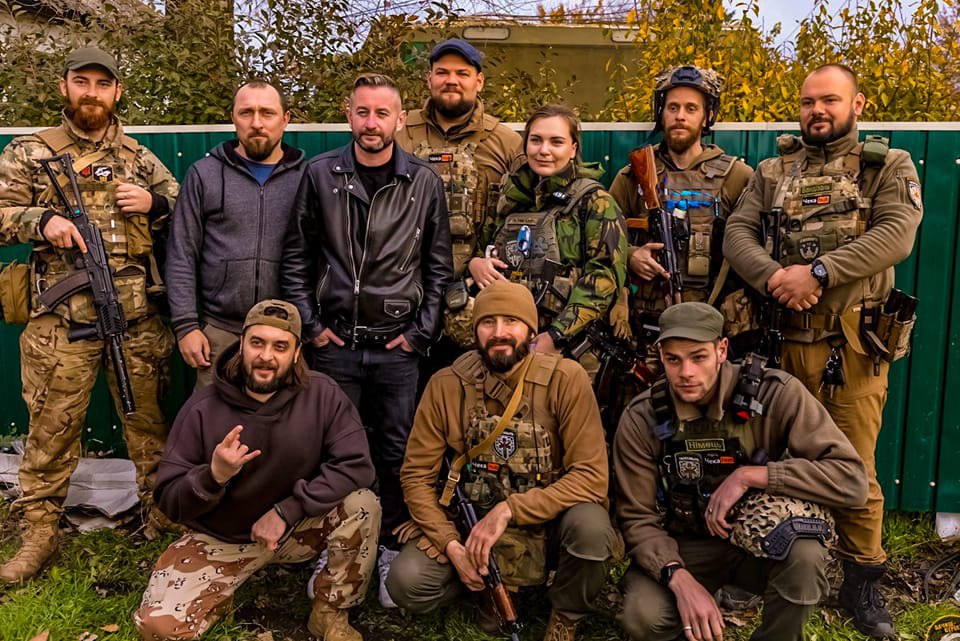
They worked on the front line of medical evacuation – stationed just 7-10 minutes from the battlefield. Rotations typically occurred every other month, giving the team time to recover physically and mentally before returning to the front. This rhythm allowed them to operate with greater effectiveness under the extreme pressure of war.
“We evacuate the wounded directly from the front line – we don’t wait for them to be brought to us or driven in,” Iryna said of their work near Bakhmut. “A few days ago, we arrived at an evacuation point so close to the frontline that even armoured vehicles couldn’t reach it. We were called in early, and we got spotted – suddenly, artillery began targeting us. Then small arms fire broke out, and we lost contact with the nearby positions. At that moment, we had no communication with our own people. I was overwhelmed with stress – no one around us even knew we were there as medics. It’s a miracle we survived. The leader of our unit was believed to be a 200. He was wounded, we helped him and pulled back. It was war. Everything was stifling, filthy, unbearable.”
“Fifteen minutes after that nightmare, we drove to Kostyantynivka. And there, we decided to buy eggs. It felt like a video game had just ended… But you’re not in a game. You’re alive. People are shopping in the store. You’re shopping too – eggs, courgettes, dried apricots, water. You’re standing at the till, your boots caked in mud. The cashier scans your groceries: beep, beep, beep. The feeling is eerie – completely surreal, like you’ve been thrown into the Matrix. You’ve just been in a place where people die, where you save lives, where death breathes on your neck… And now suddenly you’re queueing to buy groceries. Why go back there? Why live through it again, when another world is right next door?”
For Cheka, the most harrowing period came in the Serebryanka forest. The road to their position was in such terrible condition that every journey was a gamble – one wrong move and they could be hit. Evacuations took longer, and the danger was constant.
In the spring of 2023, during one of these missions, Ira narrowly escaped death when the forest was hit by Russian KAB bombs. The experience shook her deeply. After that, she wrote her will and a set of instructions, carefully outlining how she wanted her funeral to look.
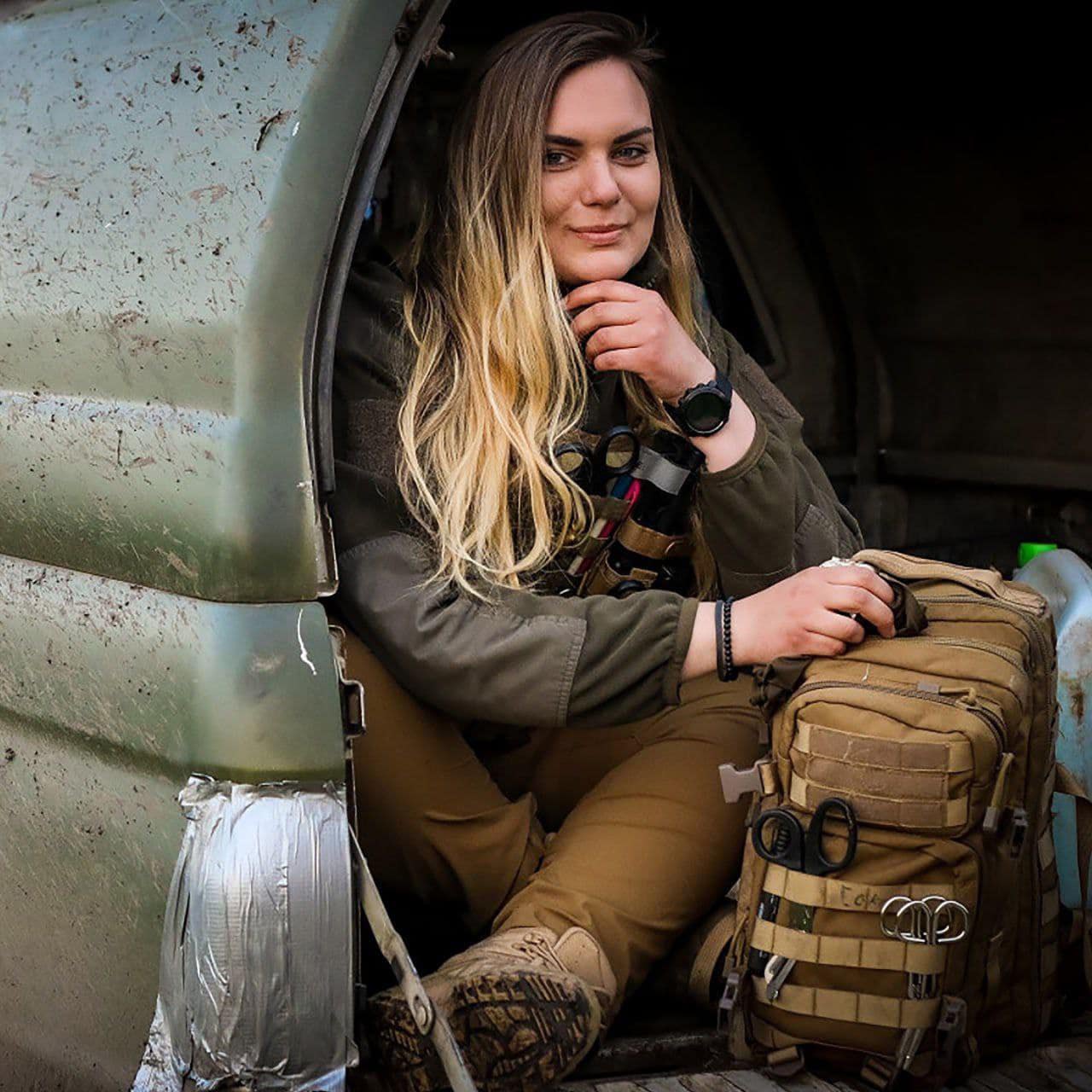
Iryna Tsybukh recorded a series of podcasts about her experience at the front – raw, honest reflections that strike deeply with their painful sincerity.
“This podcast diary is my experience of preparing for a rotation, being at war, saving soldiers’ lives, facing inner fears, despair, and moments of happiness. This project was created to make the war more understandable – to show it through the prism of a girl who was forced to defend her country because of a full-scale invasion,” she wrote in the description.
In the first episode, titled Heroine, Death and Mum, Ira speaks about the duality of her identity: at the front, she is a Heroine – a combat medic saving lives. But for her family, she will always remain little Iryna. Her mother did not give birth to a soldier in uniform – she gave birth to Irynka, “artistic, with thick hair. Plump and a bit cunning.”
Curled up on the sofa in her parents’ house, Ira speaks through tears about the ritual she follows before each rotation: coming home to say goodbye, just in case she doesn’t return. She reflects on the quiet superpower of her family – their unwavering love – and the paralysing fear they carry of losing her.
“I know how unbearably hard and frightening it is for my parents to let me go,” she says, “but I can’t help myself. I have to go.”
“None of them can imagine how scared I am of dying when I’m at home,” Ira admits. “Saying goodbye is the hardest part. I’m drowning in love for them. It’s the moment I feel immense gratitude to the people who are the only ones to love me truly, unconditionally. When I cry, it’s not the paramedic in uniform who’s crying – not Cheka. It’s the little Iryna, the daughter, so afraid of disappointing her mother, of hurting her. Of being the reason someone knocks on the door with news of her death.”
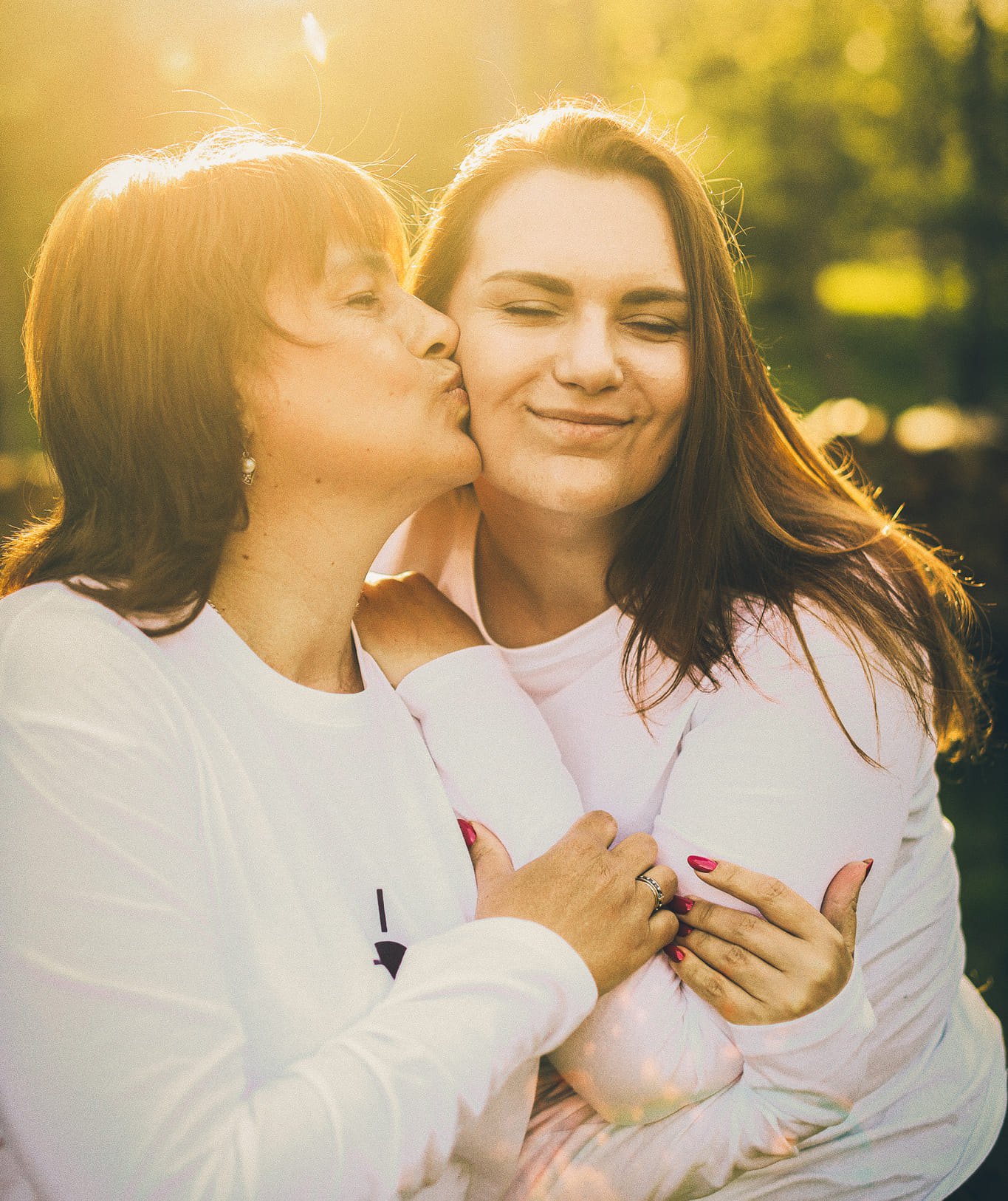
In other podcast episodes, Ira speaks openly about losing comrades, what rotations in Donetsk Region are like, and the chaos of moments when she had to help six wounded soldiers at once. She talks about love, too – and why the anxieties that plague civilian life, like career, social status, success, money or appearance, lose all meaning in war.
Across her social media, numerous interviews and podcasts, Iryna reflects with painful clarity on the war and her role in it. In one such reflection, she said:
“Now I want to remember what I’m doing here, how I got here.
War is my way of realising the kind of freedom that allows me to be who I truly am. I don’t want just a little bit of freedom – I want all of it. And that’s why I’m a paramedic for the people who are fighting for it. My personal freedom isn’t secure right now. And while the country is at war, none of those so-called important things – the things people worry about in civilian life – are worth returning to. Not until it’s over.”
She described moments after evacuating the wounded – the physical and emotional unburdening.
“After the evacuation, you exhale. You take off your armour and feel the wind blowing across your wet back. The weight of a life saved lifts from your soul, and you remove the two plates that just moments ago were protecting your heart and lungs from shrapnel or bullets.
In civilian life, as soon as one task is finished, the anxiety for the next one begins. As if there had never been a pause – no defence, no rest, no moment to breathe. No permission to stop.
After an evacuation, do you know what you need to do? Change your clothes. Make tea. Wash your hands before anything else – and wash the scissors clean of blood. Clean the car, if you have energy. And do all of this with a quiet sense of calm and gratitude that this time, everything went well.
That routine – this small, careful ritual – allows you to process the stress. It helps you stay grounded, not to panic about the next call. Because our only task, our only priority today, is the life of the wounded soldier.”
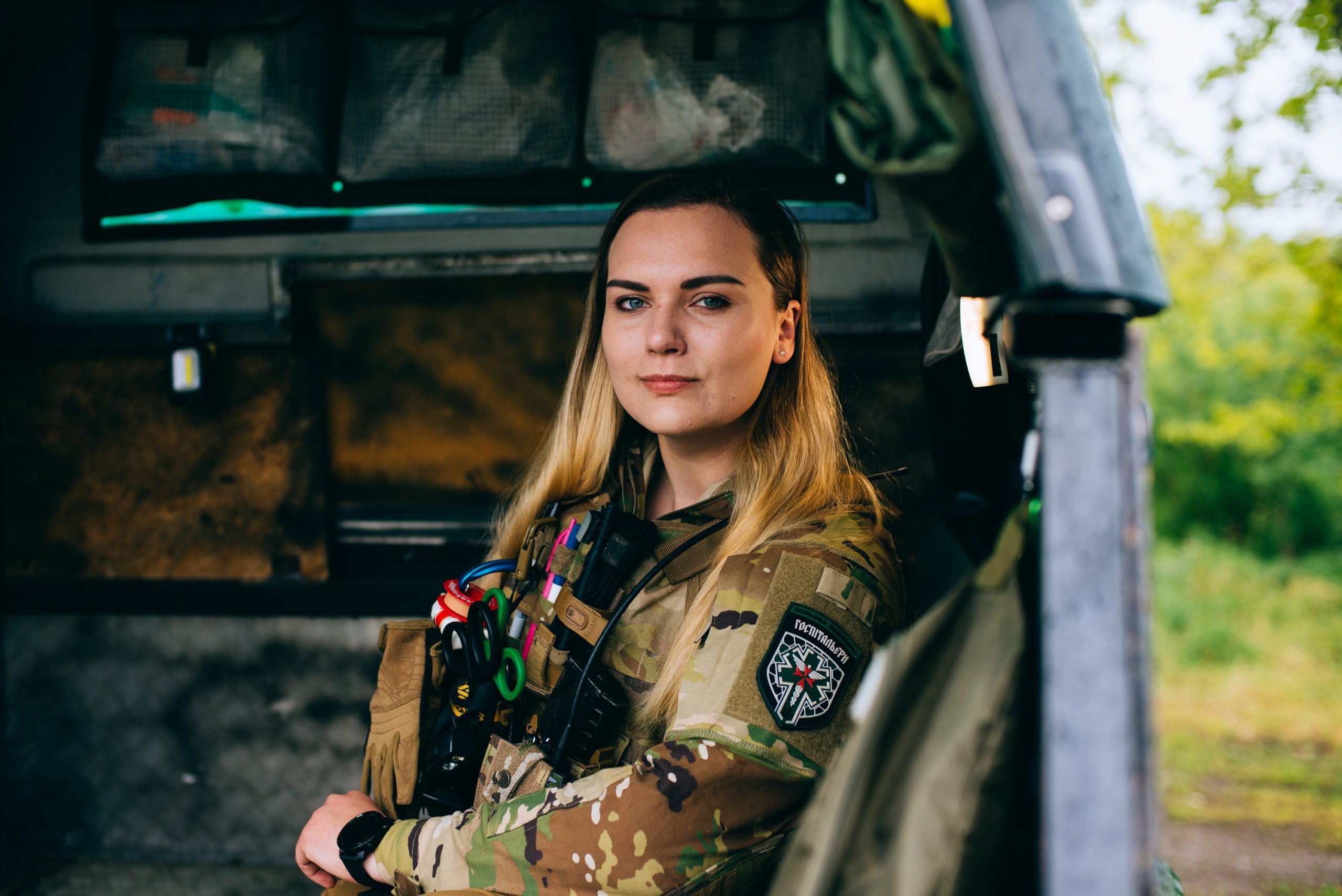
At the front, Ira always aimed for perfection. She did everything she could to provide her crew with what they needed – striving not just to lead, but to love and care for her team deeply. She regularly held debriefings and meetings, where they analysed everything they had done during their rotations.
Together with her comrades, she even filmed and uploaded a YouTube video about civilian vehicles adapted for frontline evacuations. They called them “Suchka” and “Okhtyrka” – pickup trucks converted with armoured kungs long enough to carry a stretcher, and fitted with stoves to keep the wounded warm and prevent hypothermia during the winter.
“We’ve equipped the evacuation vehicle in a very modern way – it’s a unique vehicle for the first line,” Ira explained. “We work directly from the trench – we can provide care there if needed, stabilise the wounded and then move them into the vehicle. We converted it ourselves, even though this is the very first stage of evacuation and vehicles like this are extremely rare. It’s a fully-fledged resuscitation vehicle capable of performing all the procedures done at the next stage – the medical evacuation.
I’m very proud of this, because it speaks to personal responsibility, to leadership – to the belief that we shouldn’t wait for change, we should be the ones to make it. You feel this acutely when someone’s life depends on you. There’s no time to wait – you act, here and now. And wouldn’t it be great if everyone felt this kind of responsibility and amplified the impact of their actions to the point where it could save someone’s life?
The principle of our crew is to be the most modern and professional first-aid team. We try to set the standard – to be the trendsetters for a warm, properly equipped ‘evac’ from the trench to the medevac. We are not a taxi. We are not a cold coffin truck. We are a pickup converted into a proper resuscitation vehicle,” Ira said.
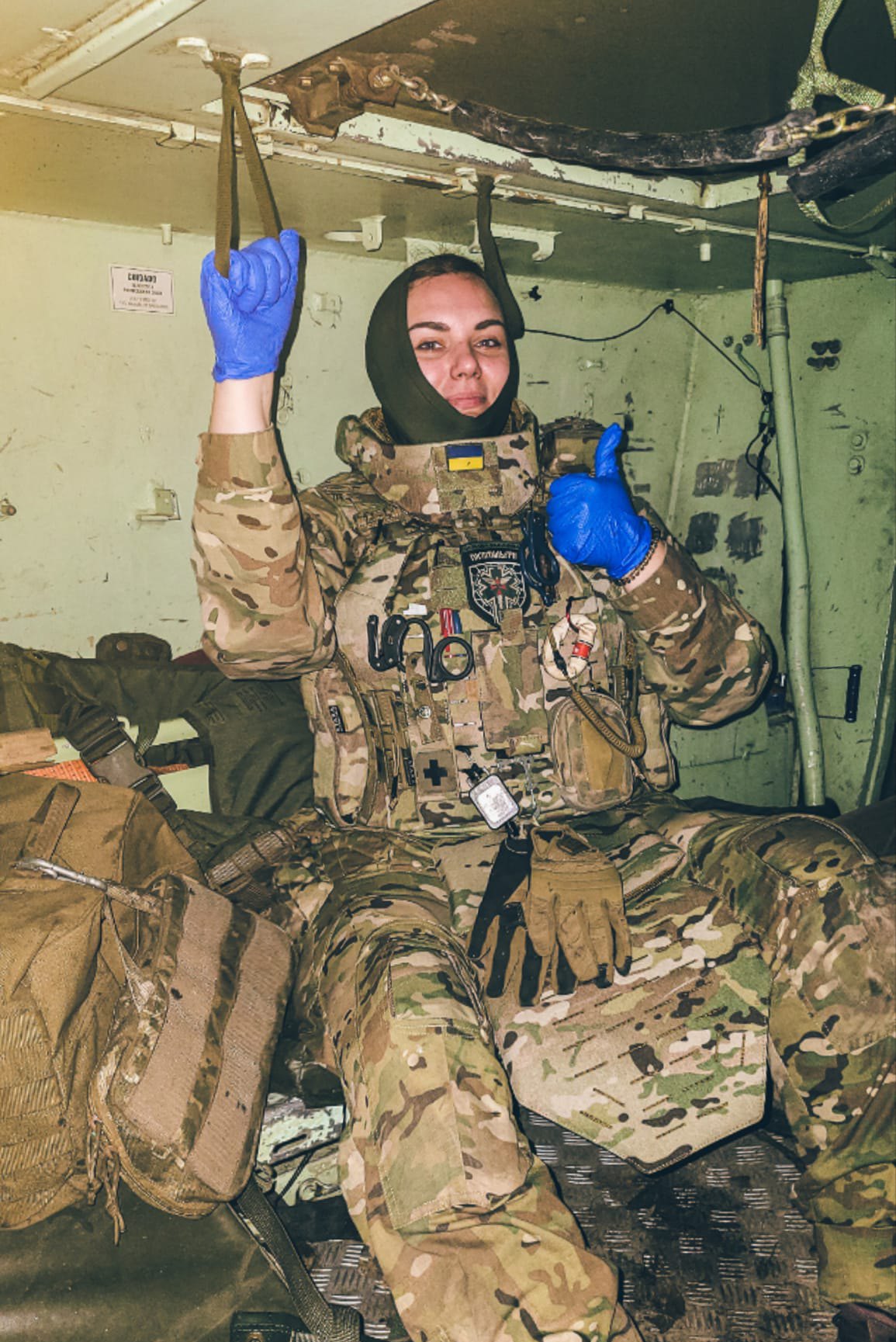
In one of her Instagram posts, Ira described what it meant to her to evacuate the wounded from the front line:
“Working in a casevac
is to take the wounded under artillery fire during a battle
It means providing assistance, giving all your love and support to the wounded to at least slightly relieve the pain that is doubled by the difficult transport on a dirt road
to evacuate the fighters on a road that no one else can pass except for an L200
is to hand over the fighters in the zone of conditional security, exhale for a moment and return to hell for the others
to feel enormous gratitude to the team that kept me alive
This is ammunition, clothes, hair, hands, shoes in blood and mud
it is the whole body covered with bruises and haematomas
washing the car from the blood mixed with dirt that has stuck to the rusted parts of the pickup truck
I wish you had never read this post. I wish my mum didn’t cry when she talks to me. I wish I had an empty notebook, not filled with the names of the wounded. I would also like to live my cool civilian life…”
For her selfless work on the frontline, Iryna Tsybukh was awarded the Order of Merit, III class – presented to her personally by the President – the Order of Courage, III class (posthumously), and the medal For Saved Life. Shortly before her death, she also received the UP 100. The Power of Womenaward.
Fellow crewmate Taras “Lyutyy”, a military surgeon from Lviv in civilian life, joined Cheka’s team in August 2022. He originally planned to stay for just two weeks, temporarily replacing a medic who had left – but remained for almost two years, becoming one of Iryna’s closest friends.
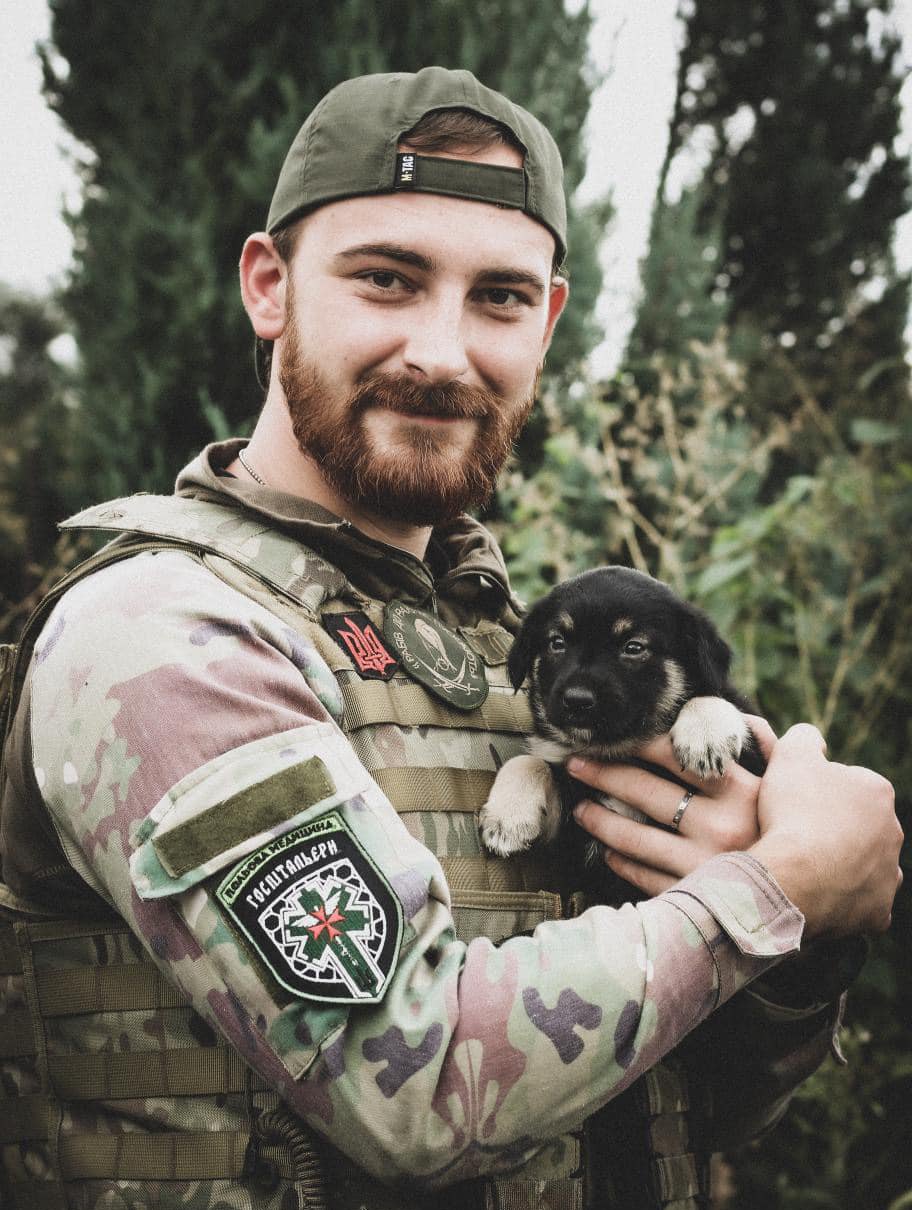
“Ira was very good at organising processes, introducing people, communicating with a wide variety of people – from different levels of commanders to local ladies,” Lyutyy recalls. “She would walk into a room and start telling the unit’s commanders how to improve their medical services. And they listened to her and did what Cheka said – not what they were told from above.
She never adapted to anyone. Ira was always herself. She always had her own point of view, which she was able to defend. Ira – we all understood that we had to be mega-effective and went to the unit where it was hardest at the time, where there was the biggest trouble. We knew what death was, what fear was, what it meant to be afraid. But we also understood that our fear could be converted into time for someone. This time could be converted into someone’s lost life or health. And life and health are extremely important. The concept of fear was absent with Ira – as strange as it may sound, given the fact that I am a man.
We ended our conversations and negotiations on the council with the words ‘kiss, kiss, I love you’. Sometimes it even sounded funny – especially when a big, strong man like our Borsuk would say ‘kisses’ on the radio. But we all understood what it meant and what was really behind those words.
Because Ira was about love. It is difficult to meet such love – such a person like her – in life. My work ends with me going to see Ira… Love is manifested in self-sacrifice. Ira showed us what that means.”
Was evacuating the wounded from the battlefield – repeatedly lying under heavy mortar or UGV fire, risking being hit by an FPV drone – really the life this bright young girl dreamed of? Was this how she saw her future?
Ira repeatedly addressed this question in her interviews and social media posts. It was one of the most important messages she wanted to convey to society.
She spoke about responsibility, duty, and love for her country – about the impossibility of living differently and standing aside while a terrible, bloody war for Ukraine’s freedom and existence continues every day.
“I never wanted to be at war. I hate everything that is happening to us, and this is not my story. I am a girl who loves travelling and doing educational projects for children. I am not a person who has dreamed of working as a paramedic all my life. But Russian aggression forced me to defend my country.
I am a young girl like any other in France or Spain. The only difference is that we have a totalitarian regime on our border which attacked the country I love so much. I like travelling, but I want to live here. And that’s why I’m defending my country – that’s why I’m ready to die to have freedom in my country,” she said in an interview with Elle magazine.
Shortly before her death, she also admitted that she wanted to have a husband, children, her own house – and high beds where she would plant tomatoes. High ones, so that her back wouldn’t hurt. But all this would come later – because now, the most important thing was to end the war.
A year later, Elle published a new interview with Cheka, featuring photos by Anna Honcharova. In them, Ira is not in military uniform, as usual, but in a beautiful dress, with her hair playfully blowing across her face – and incredibly beautiful eyes.
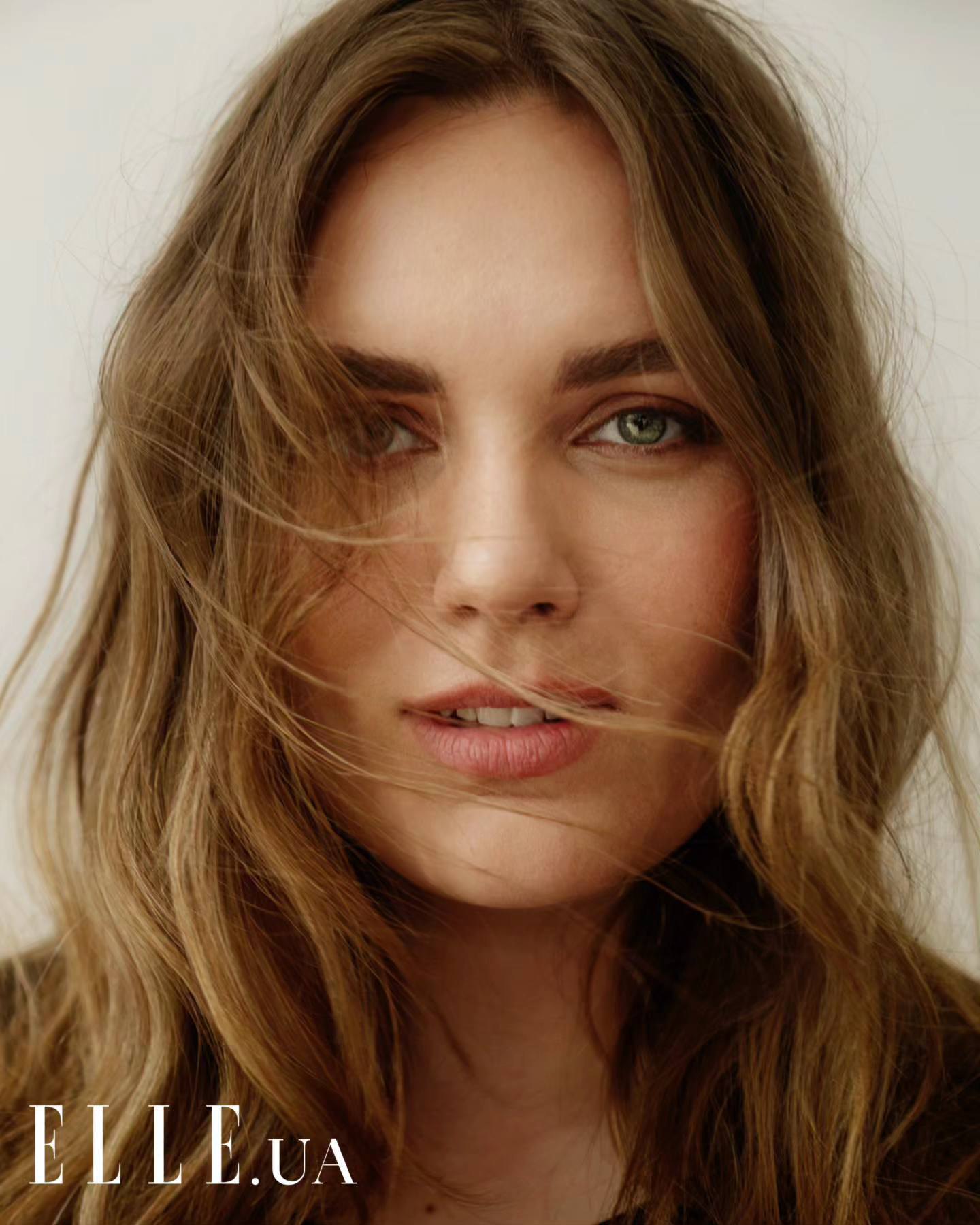
Ira was very beautiful and always tried to look after herself. While her comrades hurried to rest after returning from a mission, Ira would look for water to wash her hair and a spare minute to put on make-up. Her famous pink shoulder blade had long since become a meme in the battalion.
In that photoshoot, she did not hide her arms behind long sleeves for the first time. Due to constant stress and lack of sleep, Iryna began to have problems with her hormones and endocrine system. As a result, she gained weight, which she was ashamed of. She also began to suffer from back problems. Treatment took a long time. She was troubled not only by physical ailments but also by depression and anxiety – which deepened when she was in the rear.
Cheka underwent therapy with a psychotherapist and took antidepressants. Eventually, she managed to cope with her anxiety.
The emotional exhaustion Cheka experienced was also linked to her awareness that victory was still very far away – and that many people would not live to see the end of the war. Not everyone was ready to give themselves fully to the struggle as she did. Ira was deeply critical of those who were in no hurry to relieve exhausted soldiers. Every person now holding the frontline would also like to sit in Kyiv and drink a latte, enjoying life, she said – but for that to happen, they need to be replaced.
In one of her interviews, she spoke about the unfair and painful loneliness of those who had been on the frontline for years, and how Ukrainian society is not always worthy of the ranks and deaths of its defenders:
“Two things are the most terrible in war. The irreversibility of deaths – when you realise that you are not God and cannot influence the situation, no matter how much you want to – and a soldier dies of wounds. There is nothing you can do, the story of his life is over. But the story of his family’s life does not end, and a very difficult process of grieving begins. I experience this very hard, because my own uncle and my very close friends are at war, and I feel each death very deeply, because I am also afraid of losing my loved ones.
And the second thing is loneliness. This is an unfair loneliness – perhaps it should be called that – because the exhaustion that soldiers feel, and sometimes it’s to the point of hallucinations, very serious sleep disorders, and difficult emotional states, happens while someone has decided to stay in Kyiv and drink coffee. And this someone could be a replacement for that fighter, who is twice as exhausted as both of them.
The army is short of people, and the unfair loneliness kills you bit by bit – because everyone is very supportive, everyone is very involved, very grateful, smiling, saying that we are heroes – but in reality, there are not enough people in the trenches, the army is short of people.
There is no need to thank us – the military are not some ‘other’ people. Winter is not a problem for the military, duty is not a problem for the military, the war is not a war for the military. This is a war of all Ukrainians, and all Ukrainians should be at the front. When you analyse this unfair loneliness, these deaths are largely unjustified – because society may not be worth them at all.”
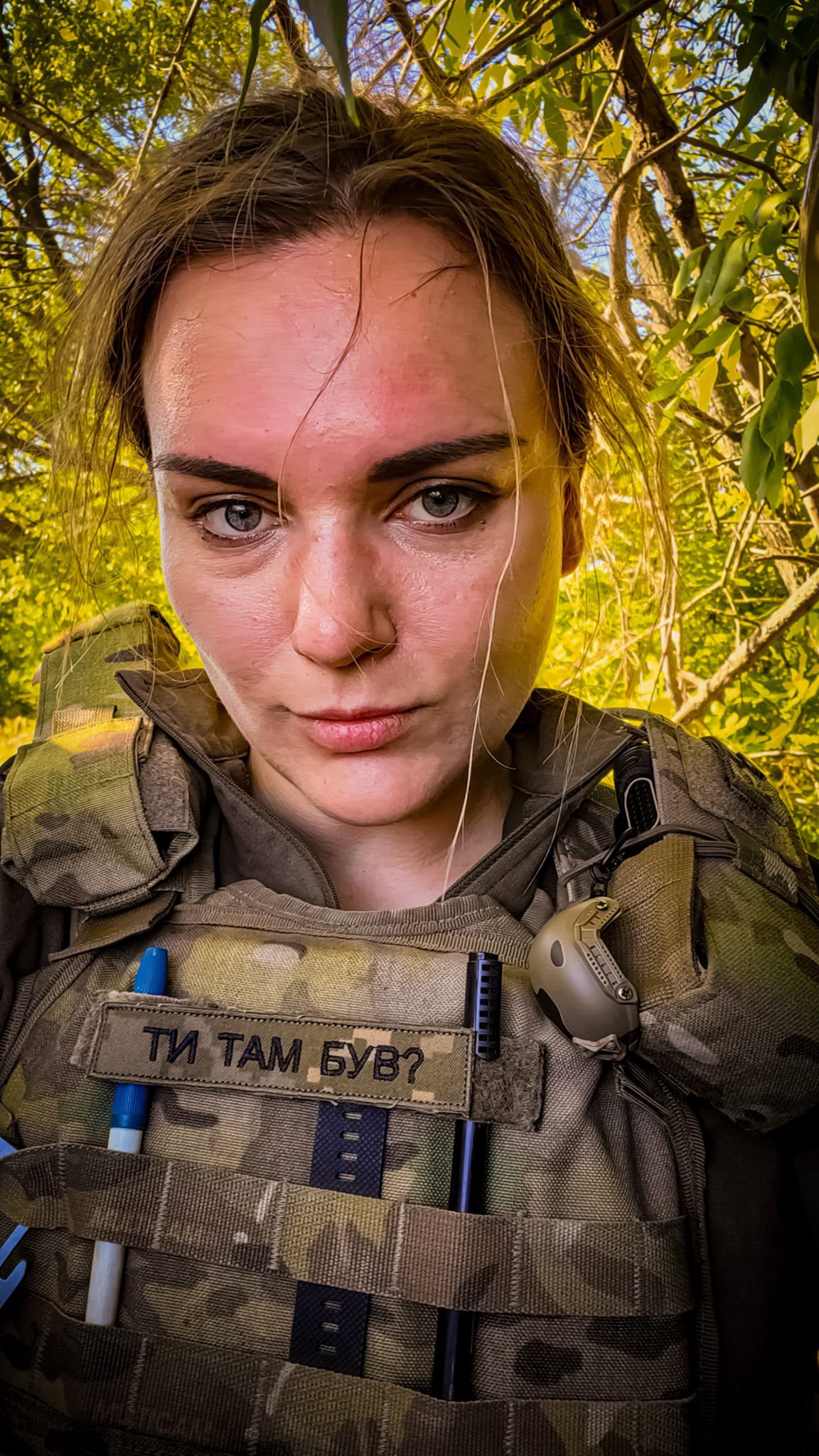
Only intense and thorough efforts lead to victory – Ira was convinced of this. And she believed the most important task for everyone on the home front was to prepare for combat.
“The only thing society really owes to the military is to replace them in their positions,”she wrote.
“It’s time. Everyone was given the opportunity to train and become professional on credit, while the overwhelming majority of those less prepared were holding back the enemy.
People. We are the generation of Russia’s full-scale war against Ukraine. We have no choice. There can only be two camps: those who died and those who survived. The camp of ‘those who paid off’, ‘those who waited it out’, ‘those who left with suitcases for Europe’ does not exist. They are outcasts and do not deserve democratic social benefits. Their package of rights and freedoms should be limited to the extent that they fought for them.
Defeat. It will certainly happen if people do not find the strength to join the army.
This is everyone’s war. In a country at war, the whole society is military.”
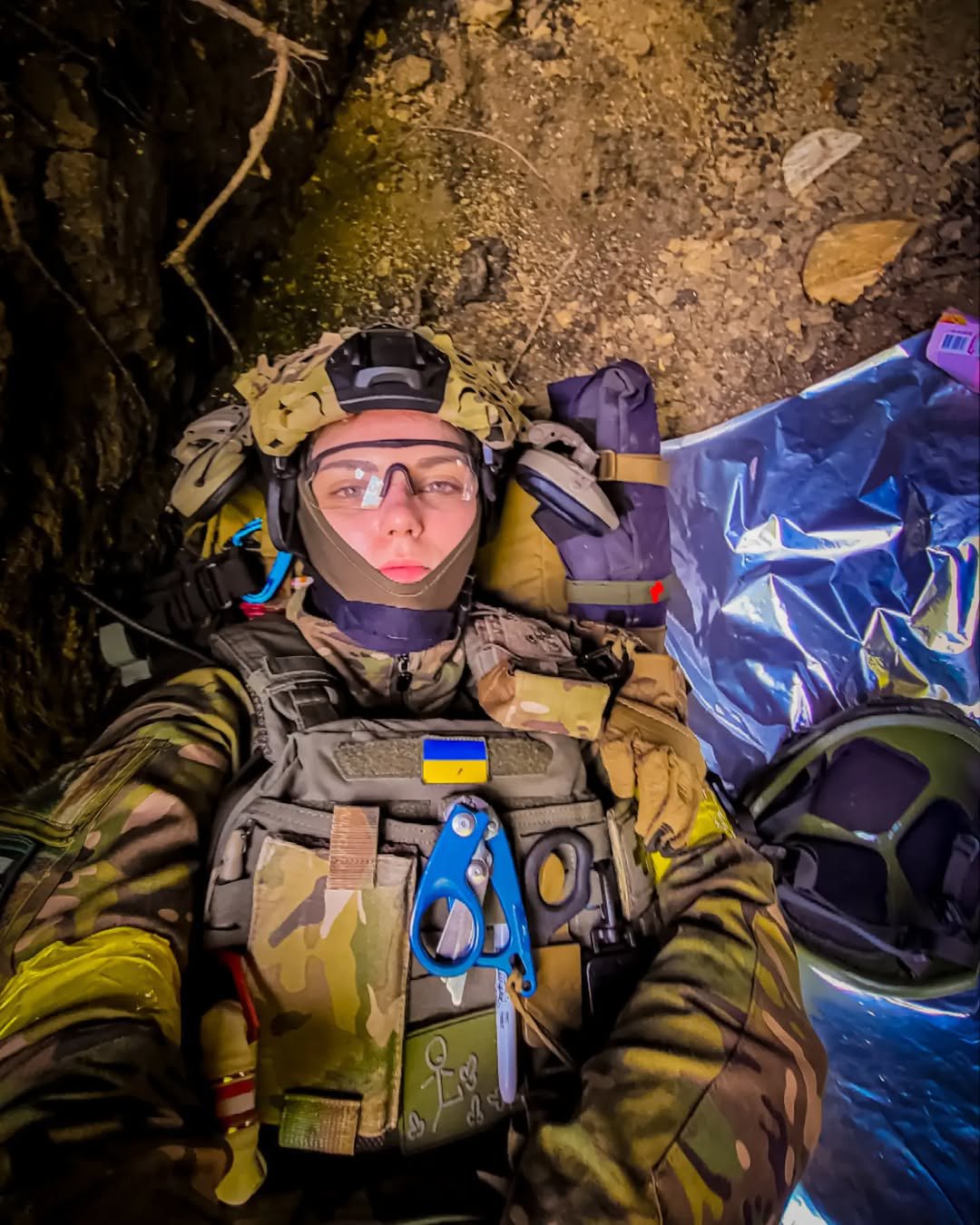
The struggle for memory
Ira often spoke about death – aware that she could die at any moment, having repeatedly survived situations where her survival felt miraculous. At times, it seemed she had accepted that she might never return from the war. Understandably, this terrified her family and friends. But with the help of therapy, those thoughts of imminent death gradually receded, and Cheka even began to timidly plan for the future.
She believed deeply that the living carry a duty to the dead – to preserve their memory and honour the fallen with dignity. She saw this as her core mission, one she intended to pursue in civilian life after the war.
While on rotations in Kyiv, Iryna began working actively on the issue of honouring fallen heroes. She argued that due to Russia’s long-term policy of erasing Ukrainian identity, Ukrainians lacked a concept and culture of historical memory – no deeply rooted tradition of commemoration. She was convinced that memory policy was a matter of strategic state importance. Ira gathered a team of like-minded people around her. She advocated for the introduction of a national minute of silence at 9:00. She also spoke of the need to create a high-quality, multimedia, multifunctional platform where information about the fallen heroes would be accessible in a variety of forms.
Ira was sharply critical of the work – or rather the inaction – of state institutions, particularly the Ministry of Veterans, which she believed had the direct responsibility of shaping a national policy on remembrance and commemorating the fallen on a strategic level. Instead, she said, government bodies were limited to short-term projects – they would do something symbolic, take photos, report on it, and stop there. In Ira’s view, this could never constitute effective institutional work. She believed such bodies should be strategically developing a comprehensive concept of memory – and a sustainable policy of remembrance.
“We need to understand two things. First – does society shape memory, or does memory shape society? I tend to favour the second option. And second – we do this not for ourselves, but for future generations. Commemoration, in general, is not for the dead – because they are already gone – but for those who will learn about them later. We know about it best, because we are participants in these events. But there will come a time – I don’t know when – when people won’t remember as vividly as we do now. That’s why I’m so interested in this topic.”
“We were on a mission a few weeks ago, and for the first time I felt a little sorry to die, because we were being hit with KABs – in a location where we had been on duty a million times, or more precisely, thirty times in a day. And it was scary. I felt that this time we were very close to being wounded or killed. And I felt a bit sorry. Why? Because, you know, I don’t want my portrait hanging on the walls of some Ukrainian institution filled with marginalised people who don’t really understand what commemoration and memory are,” Irasaid.
Cheka explained that she was ready to act as a manager in this process – but it was the representatives of the national V5 elite, scholars and academics, who should be formulating a shared vision of memory strategy and distributing it across society: to officials, teachers, bereaved families, the military, and beyond.
“The Soviet colonisation policy was aimed at erasing the memory of Ukrainians and replacing it with an alternative reality. That’s why we know so little about our own relatives. Our memory was executed and erased over generations – and that’s a major problem affecting the way we remember. And yet, our very existence after years of organised forgetting is our greatest triumph.”
“Grieving for those we have lost makes us responsible.
And it is the responsibility of the living to the dead to bear witness – to testify to what happened, and to the evil we faced,” Ira said during an open lecture for business leaders on historical memory and the honouring of fallen soldiers.
“National tragedy shapes our identity through sacrifice. It is this sacrifice that unites us – it makes us part of the same pack. Shared suffering binds us more strongly than shared joy. And ritualised mourning helps us process both individual and collective trauma. It allows us to distinguish the present from the past and to take responsibility. Such a ritual might be a physical action, in a specific place, according to specific rules.”
One of these important rituals is the daily minute of silence. It allows people to begin their day with gratitude to those who gave their lives for it.
And the fact that Ukrainian cities – including Iryna’s native Lviv – still pause for a minute at 9 a.m. to honour the fallen is largely thanks to her.
Cheka’s farewell ceremony was also extraordinary. It brought together hundreds of people in Kyiv and thousands in Lviv.
A year before her death, Ira had asked her close friend, the bandura player Maryna Krut, to compile a list of songs to be performed at her funeral.
“But let’s not include Chervona Ruta, everyone knows that one. I want the people of Kyiv to reflect – to think and learn something new,” she wrote at the time.
Maryna honoured Ira’s request. Through her tears, she sang for her friend while seated beside the coffin – first on Independence Square in Kyiv, then in the Garrison Church in Lviv. Around her, people in embroidered shirts and camouflage shared in the pain of loss, singing together as one. It was a farewell shaped by the Heroine herself. There was a great bonfire on the Field of Mars, tea, conversations, memories and songs. It was the first time we said goodbye and paid tribute to her memory.
“Ira surrounded herself with the strongest and most remarkable people. We saw many wonderful souls at her funeral – her friends and acquaintances, who also loved our daughter deeply. Thousands gathered to bid Ira farewell. And strong, courageous men in military uniforms standing by her coffin could not hold back their tears,” recalls Ira’s mother, Oksana Tsybukh. “But I was with my child in that moment. I leaned against her coffin and spoke to her. ‘Daughter, just like you taught me: Mum, you must live in the moment. You must live here and now. This is real life.’”
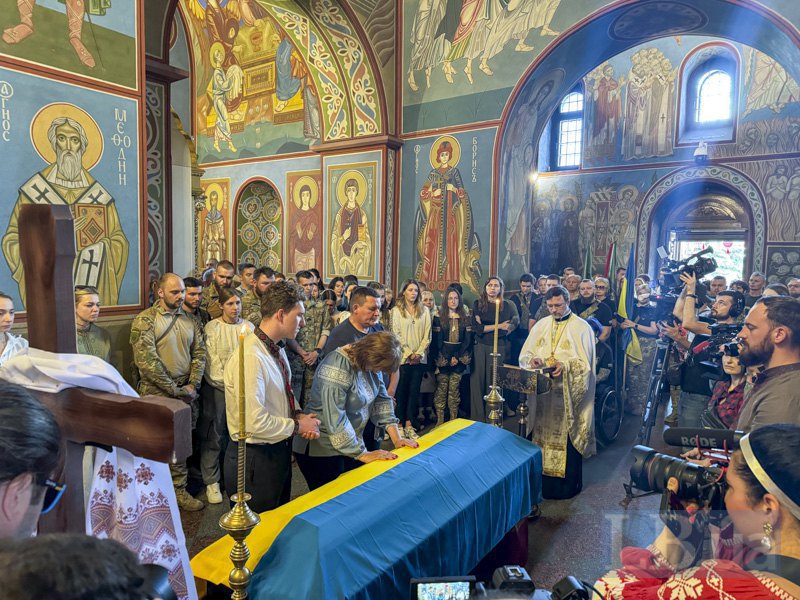
She very rarely told us that shells had exploded nearby or about any other danger. She protected us, knowing how much we worried about her. Only later, when we found the letter of instruction she had written – detailing what to do in the event of her death – did we realise how often she had been in danger.
Ira continues to teach me and to surprise me with her depth and wisdom. Every time I prepare for an interview or a meeting, I reread her posts, listen to her interviews, and marvel at how profoundly she had grown. She is, and will always be, with us. Iryna is still guiding us.
“Freedom is the highest value,” Iryna Tsybukh wrote in her farewell letter. “The most important thing I want to say is thank you – to myself, to my parents, my brother, my family and friends – thank you for allowing me to be free, to live the life I wanted.
To have freedom, you must first have other values. You must understand yourself – know who you are, what personal happiness means, and how you can reach it. Once you have the answer to these questions, the most important thing is to go. Today, here in the Donetsk Region, I am on my way, I am myself, and I am doing what I want. In truth, nothing else matters, so this letter is added so simply – at this moment, as well as when it happens, I am not sorry to die, because I am finally living the life I would have liked.
Today, everything is over – my life is over – and it was important for me to live it with dignity: to be an honest, kind, loving person. Today, we are working for Heroes, and this is a good opportunity to confirm my values – to be that person.
I am grateful to everyone who loved and supported me. Don’t miss me. Life is very short. If it continues after death – I’ll see you again.
To have the strength to be a free person, you have to be brave. Only the brave have happiness, and it is better to die running than to live rotting.
Be worthy of the deeds of our Heroes. Don’t be sad. Be brave.
Kisses, yours sincerely,
08.04.23
Donetsk Region
